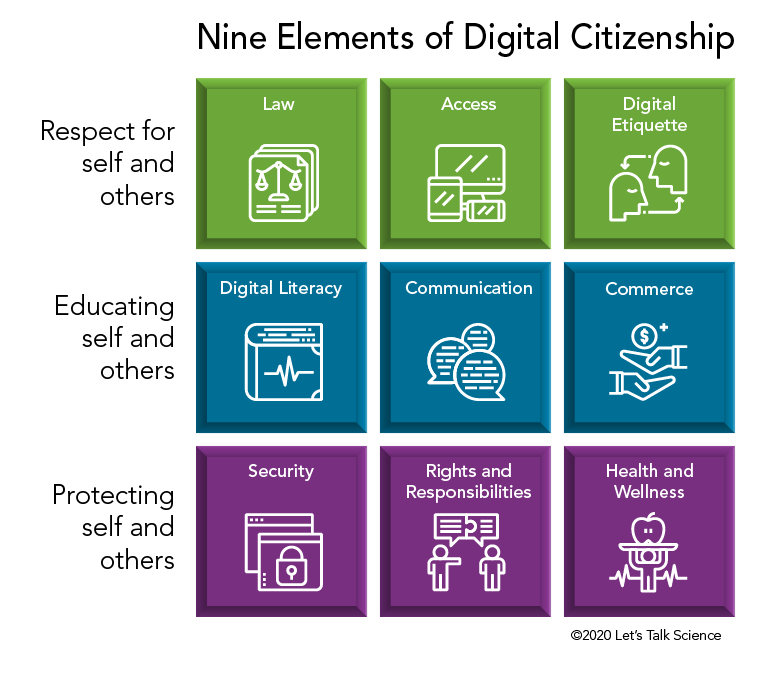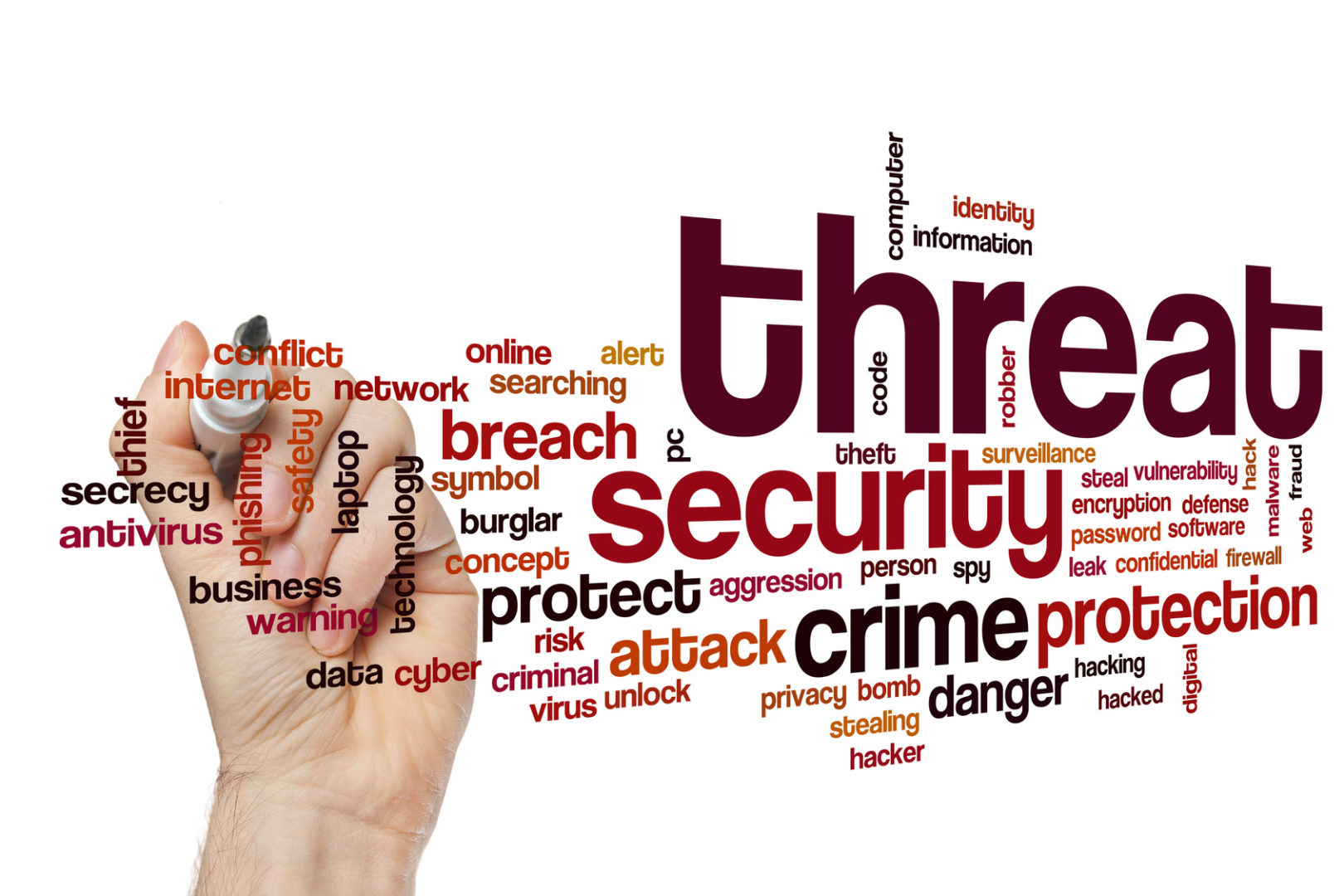Digital citizenship is defined as “the code of conduct related to the use of digital technology”, and the digital citizenship of youth is divided into three categories: digital respect, digital education and digital protection from Kara’s article, including nine sub-dimensions (digital etiquette, digital access, digital law, digital communication, digital literacy, digital commerce, digital rights and responsibilities, digital security and digital health and wellness). In the process of digital development, the personal identity of students becomes complicated and dynamic. Therefore, in the digital living environment to confirm the new identity of students, improve the new ability of students, to meet the new demands of students have become an important issue to be solved in the development of the digital age. Educators need to work harder to help students become their own digital citizens, fully understand the role of self in the virtual space, and participate in the construction of digital society.

An interesting definition came up when I did some research about Ribble’s 9 Elements of Digital Citizenship: Digital Survival. The term “digital survival” was first proposed and widely disseminated by Professor Negroponte of the Massachusetts Institute of Technology. He believes that digital survival is a new way of living based on information technology in modern society. In the digital living environment, people’s way of production, way of life, way of communication, way of thinking, and way of behaviour have taken on a new look. As a generation that has grown up with the Internet, today’s children interpret the essence of digital survival with their actions in the real space and the digital space. As citizens of the digital age, teachers need to educate students to use digital information tools safely, legally and ethically, have extensive knowledge and skills in the field of information technology, and have a responsibility to participate in social activities and promote social development. Digital survival has become a way of life for today’s young people, who fully enjoy the convenience brought by the Internet in their study and life, but excessive reliance on the use of technology will inevitably lead to many problems, such as increasing the possibility of contact with wrong information, violent information and network threats.

Firstly, technical skills are fundamental. Students are not only participants in the digital age but also creators who affect the digital future. Students should not only adapt to the changes of the digital age but also actively master modern digital skills to keep up with and even lead the development of the digital age. Secondly, people are all social beings, living in a society with strong social attributes, individual consciousness is common, but group thinking is relatively lacking. Digital skills training activities for all should not only train students’ individual abilities but more importantly, train them to use digital technologies to communicate and collaborate in teams. Thirdly, it is necessary to guide students to clearly understand the advantages of digital technology, actively integrate into the digital age, and develop digital skills, but also to help them determine the boundaries of network behavior, clearly recognize the potential risks of digital technology, and then get rid of the dilemma of digital survival.

Internet abuse and digital technology addiction have brought great risks to children and adolescents, including online fraud, cyberbullying, social addiction and many physical and psychological diseases. Although there are many reasons for network risks, improving the ability of individuals to resist network risks will fundamentally solve this problem. Families, schools and society should aim to care for the healthy growth of young people in the digital age and work together to promote their transformation into qualified digital citizens. Improving students’ digital literacy is an inevitable requirement to guide students to have value recognition of “digital citizenship”, and it is the only way to regulate digital civilized behavior and avoid digital potential risks.
2 Comments
Jacquie Ehrmantraut
Hi Echo! I completely agree with your comment about a societal shift in identity, specifically in students in which the digital world seems to consume every aspect of their life (school, family, friends, down time, etc.). My content catalyst topic is actually on approaching identity in a digital world, so I will be discussing this a bit further in a couple weeks!
In addition to your points about the drawbacks to the digitalization of society, I would add that it creates another layer of privilege and schools are the space that are being leaned upon to level that playing field, which is not easy to do if the schools themselves don’t have everything they need to do so (good Wifi, devices for all kids to use, etc.). This layer of privilege has in itself shifted society in ways that we have seen and will continue to see as society’s reliance on technology grows, which of course is something we have no choice but to address in the education system. HOPEFULLY by addressing Ribble’s elements of digital citizenship in our classrooms, it will help in building positive future leaders of the (digital) world.
Thanks for sharing!
Echo
Hi Jacquie,
I’m glad to hear that you’re working on a content catalyst topic about approaching identity in a digital world. It’s a crucial and evolving aspect of our lives, especially for students who are growing up in this digital age. Your insights about the digitalization of society and its impact on privilege and the role of schools in leveling the playing field are particularly relevant.